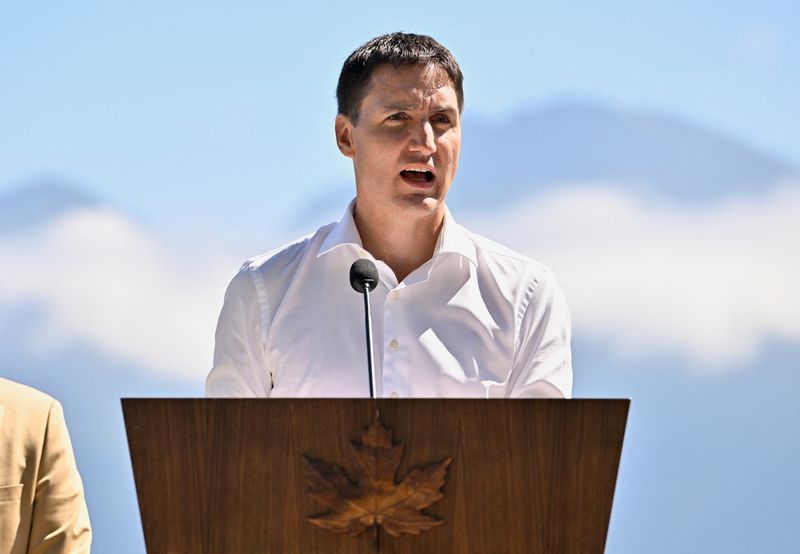(Reuters) - Canadian Prime Minister Justin Trudeau said on Tuesday it was hard to trust those in charge at Hockey Canada after reports that the national governing body maintained a fund to pay for uninsured liabilities, including sexual abuse claims.
According to a report on the Globe and Mail website, a multimillion-dollar fund financed by registration fees of players across the hockey-mad country is used to settle abuse claims with minimal outside scrutiny.
"Right now it's hard for anyone in Canada to have faith or trust in anyone at Hockey Canada," Trudeau said in response to a question during an unrelated news conference in Bowen Island, British Columbia.
"What we're learning today is absolutely unacceptable. It's why a number of days ago or weeks ago, we froze funding to Hockey Canada pending significant reforms and transparency and accountability."
Hockey Canada did not immediately reply when asked by Reuters to comment on Trudeau's remarks.
In April, a woman filed a lawsuit that alleged she was sexually assaulted in a hotel room by eight hockey players following a Hockey Canada golf and gala event in 2018.
Hockey Canada settled the lawsuit in May. The allegations against the unnamed players have not been proved in court.
Last month, the Canadian federal government froze funding to Hockey Canada over its handling of the alleged sexual assault and out-of-court settlement while a number of sponsors have paused their relationship with the organisation.
Earlier this week, Hockey Canada said it decided to re-open an investigation into the alleged sexual assault as part of a plan to eliminate a "culture of toxic behaviour" within the sport.

"When I think about the culture that is apparently permeating the highest orders of that organisation, I can understand why so many parents, why so many Canadians who take such pride in our national winter sport are absolutely disgusted by what's going on," said Trudeau.
"Certainly as a government we will continue to be unequivocal in our condemnation of what we're learning and mostly in our demands that things change significantly."